This is the first article in a new riding skills series called Motor School with Quinn Redeker, which will be published monthly in Rider magazine starting with the September 2023 issue. –Ed.
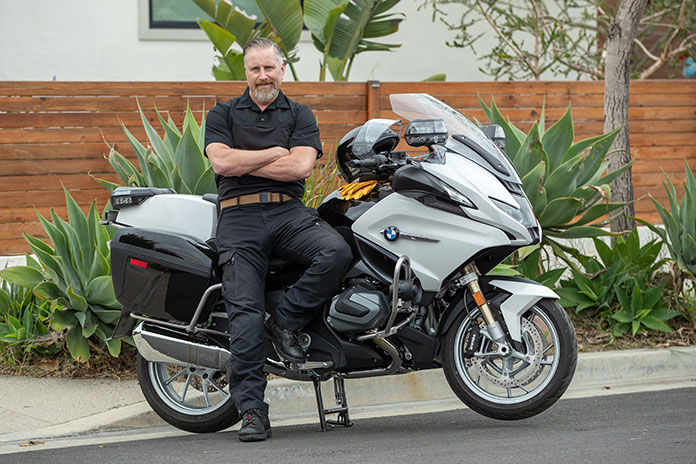
Welcome to the first day of school! If you’re like me, you probably dreaded going to school, but I plan to make this column something you’ll look forward to. The only subject on the agenda is riding motorcycles, so how bad can it be?
In the months ahead, I will bring you stories and concepts that will improve your mental and physical state while riding a motorcycle. I’m confident we can move the needle in a positive direction no matter how long you’ve been riding. Before we get into the nitty gritty, I want to share some of my background so you know where I’m coming from.
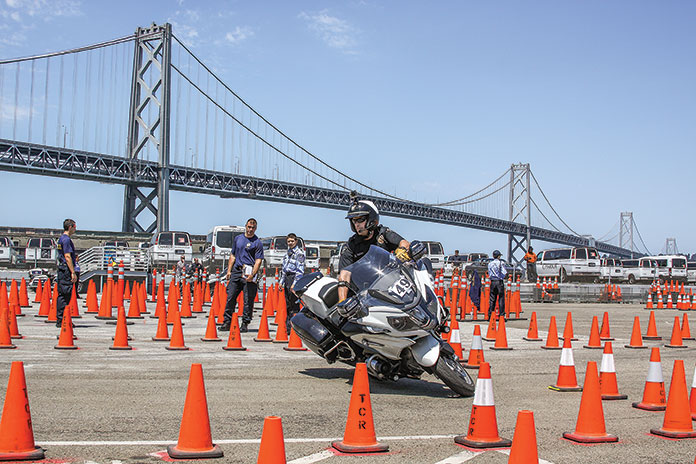
Related: Profile: Quinn Redeker, Ventura Police’s ‘Top Gun’ Rider
My motorcycle riding and competition background started on a Honda XR80 when I was 9. I won’t bore you with the long and winding road that led me from then to now, but suffice it to say, I’ve had quite a bit of seat time, from motocross to desert racing, street to track, trials to dirt track. I grew up riding every day in the mountains near Granada Hills, California, and racing on weekends. As a result, I’ve not only burned a lot of gas but can also describe, with exceedingly painful detail, the view from the bay door of a rescue helicopter headed to the ER.
In 2009, I became a police motor officer at the dangerously young age of 39 years. That move led me into the world of police motor competitions, an arena of motorcycling that takes big, heavy bikes and twists them into tight 1st-gear patterns while under the watchful eyes of judges and the countdown of a stopwatch. I loved it, and I placed on the podium in my first competition. From that point forward, I was hooked. I trained during the workweek, competed on weekends, and shoved my head deep into the rabbit hole, becoming a certified police motor instructor in the process.
Thanks to the support of the Ventura Police Department, where I was employed, I participated in well over 100 police competitions around the country, taking top honors in all but a few. What are police competitions like, you ask? Well, imagine your motorcycle is extremely angry at you for no good reason at all, and no matter how hard you wrestle with the controls and how much you sweet-talk it, you get tossed around in 1st gear, with the bike twisting itself into tighter and tighter circles until hard parts scrape, and if you don’t get it right, you get spit off and your ride comes to an end, maybe with some embarrassment and bodily injury for good measure. Woohoo!
Read Quinn Redeker’s next column: What Does a Green Light Mean?
In the following series of photos, Quinn demonstrates what it looks like when everything falls into place: full lock, full lean, careful clutch and throttle, and extreme counterbalancing.
These days, I’m the North American brand ambassador for BMW Motorrad Authority Sales, having recently transitioned out of nearly 20 years in law enforcement. Now I travel around the country participating in police competitions, working with police agencies on bike setup and training questions, and facilitating test rides for agencies looking at BMW as a potential enforcement platform. It’s a great gig, and the R 1250 RT-P is tough as nails. Zero complaints there.
I’m also a certified instructor with Total Control Training and teach the Advanced Riding Clinic, Advanced Motor School, and Adventure Bike Clinic. I own PoliceMotorTraining.com, where I provide in-person training and Zoom instruction to motor officers and civilians alike. And I’ve been a guest instructor for countless advanced rider programs throughout the years and volunteered in the training of hundreds of instructors responsible for providing basic rider training throughout the state of California.
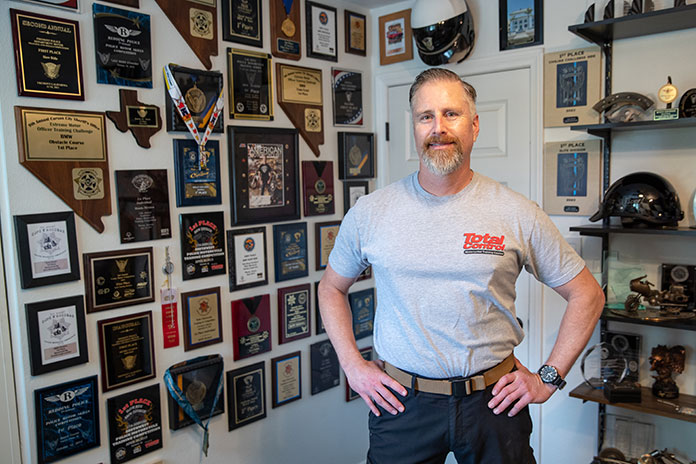
Outside of law enforcement training, I’ve absorbed lessons from many well-known books, schools, and racers, including those written or taught by Lee Parks, Gary Semics, Keith Code, Gary LaPlante, Dougie Lampkin, Danny Walker, and others.
Related: Quinn Redeker | Ep. 64 Rider Magazine Insider Podcast
This brings me to an important point: The road never ends. There is no magical skill level you will reach that provides rainbows of pure joy, ensures safe passage, or helps those riding pants fit any better. Conversely, more training can have the negative effect of making us suffer over all the things we come to realize we don’t know. Yes, I advocate rider training, but I believe that the benefit of exposure to new things is as much about the journey as it is the resultant riding ability we might acquire. The joy is in the process, not the trophy.
With that in mind, I believe we benefit by cutting ourselves some slack and recognizing that all this stuff is optional. Should we put in maximum effort? Absolutely. But you shouldn’t come home from your “Killer Street Skillz” class so dejected that you feel the need to either quit riding altogether or dedicate 19 months of intensive one-on-one training in the Arizona desert with Russian strongman Alexander Klyushev.
In fact, right now I want you to look in the mirror and say it with me: “I am okay, and people like me.” Perfect.
Of course, I want to help you become a better, safer rider. But I also want to impact the way you think about your riding. Drawing on my racing, training, instruction, and law enforcement experience, I will give you tips, suggestions, and examples of things that you can apply immediately after you set this magazine down. Some are practical, some are tactical. For example, some of the trials-riding drills I’ve learned might help with your coordination. As a police motor instructor, I might have some on-bike risk assessment insights you haven’t thought about. And if we can get you thinking about new ideas, that’s a win for both of us.
With a vast rider and instructor network to pull from, we can kick some far-reaching concepts around the room and see what sticks. Here’s the thing: It’s not about me, it’s about us. Think of this as an opportunity to share insights, experiences, and ideas to further our ability and enjoy the journey. How does that sound? I’ll make you a deal: If you read next month’s story and can’t stand it, I’ll buy your coffee next time we meet up to ride.
I welcome feedback, suggestions, and questions. Submit them here.
Quinn Redeker’s Qualifications:
- Competed in 100+ police motorcycle competitions throughout the U.S., taking top honors in most
- POST (Commission on Peace Officer Standards and Training) certified Police Motor Instructor
- POST certified EVOC (Emergency Vehicle Operation Course) Instructor
- POST certified Firearms Instructor, Range Master
- SWAT sniper (10 years), Ventura Police Department
- Lead investigator on numerous fatal traffic collision investigations
- BMW Motorrad Authority Sales Brand Ambassador
- Total Control Advanced Motor School Instructor
- Total Control Advanced Riding Clinic Instructor
- Total Control Adventure Bike Clinic Instructor

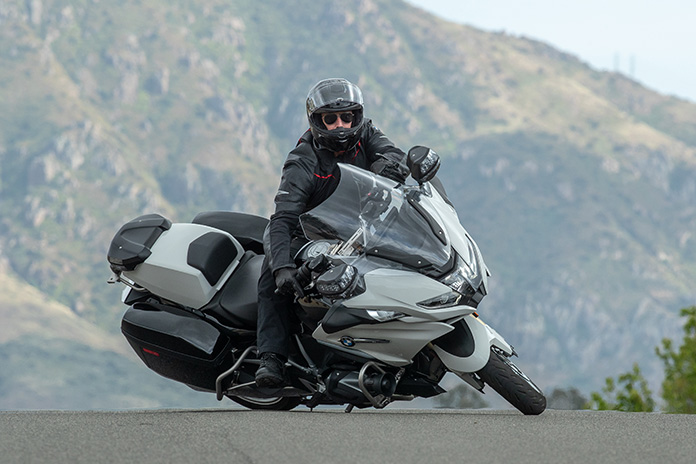
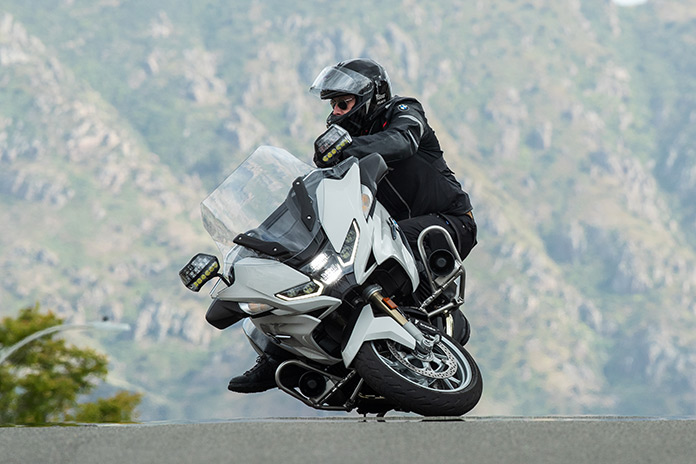
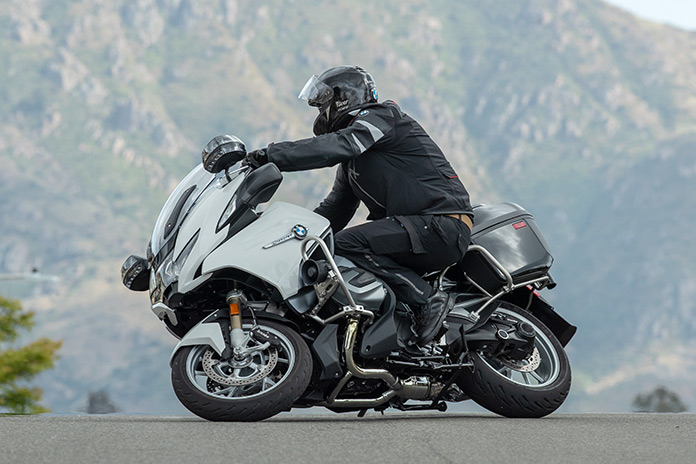
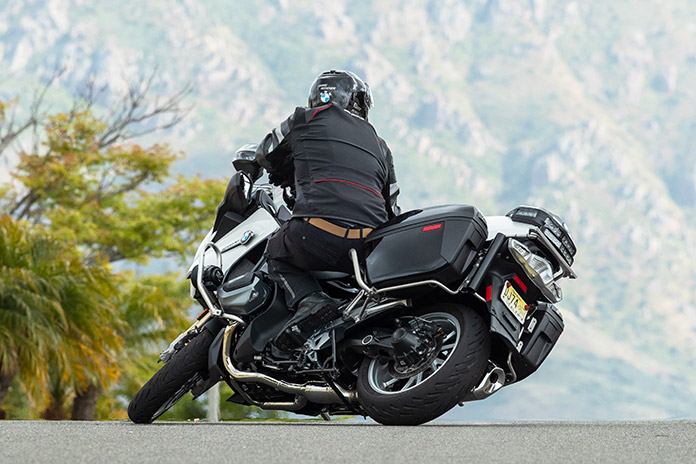




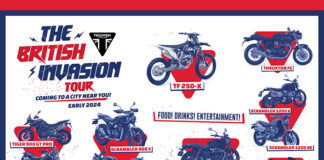


I certainly look forward to the next article. thank you.
Having seen Quinn ride and taken some training from some of his fellow officers in the training industry, I am looking forward to this. As a former motocross guy myself I believe that discipline does offer insights to big bike training that typical motor officer training does not.
This is going to be good.
I really like your common sense approach to learning new rider skills and techniques.
Will you be at the MOA M-Fest in Lebanon TN this, 2023, year?
Hey Ronald, as of this reply I do not believe I’m scheduled to be out there, but if things change and I can make it I definitely will. And just so you know, I’m expecting a cold beverage and some motorcycle discussion with you if it happens!
Hi, Quinn. Long-time Rider contributor here (recently made a Contributing Editor, so we’re colleagues). I am very much looking forward to your monthly column. My interest in learning to ride better goes back decades to when a moto mentor lent me his copy of David Hough’s “Proficient Motorcycling.” In the years since I’ve read more books and taken numerous courses, notably with Ken Condon, and I enjoy training days at the track for non sport bikes. It’s amazing what you do with an RT, which is one of my rides. Having another great source of rider knowledge and skill, delivered to me once a month, looks right up my alley.
Scott-
I appreciate the warm welcome, I am very excited to be associated with Rider Magazine and to have the opportunity to contribute to people’s riding experience. In some strange way it feels like it did back when I was a kid hanging out with the dirt bike crew; talking bikes, riding techniques, what did and did not work once the gate dropped, a few war stories, maybe a little dash of ribbing to keep everybody honest…I plan to bring that philosophy and vibe into all my articles. Really, how cool to be able to grow my collective group of riding buddies from here! I’m pumped.
Just renewed my subscription because of Quinn column getting to know and ride with him personally has been a great experience looking forward to rider magazine and Quinn’s column
This will be awesome! I need to step up, and these articles will be a great resource. Promoted off motors in 2000 after 17 yrs, now retired and enjoying life!
Having ridden various bikes since 1981, when my department wanted to resurrect a Motor Unit in 2000, I threw my name in the hat and was one of two selected to fly to East Lake (Cleveland), Ohio for 2 weeks of training and testing at the hands of skilled H-D officers (Ret.) and employees of Northwestern University (IL). Long story short, showed up with too much ‘swagger,’ got humbled quickly and learned a ton of better riding techniques and habits. That being said, I perceive Quinn’s courses eclipse this training by a parsec and should be on the bucket list of anyone serious about constantly improving our passion. Some day.